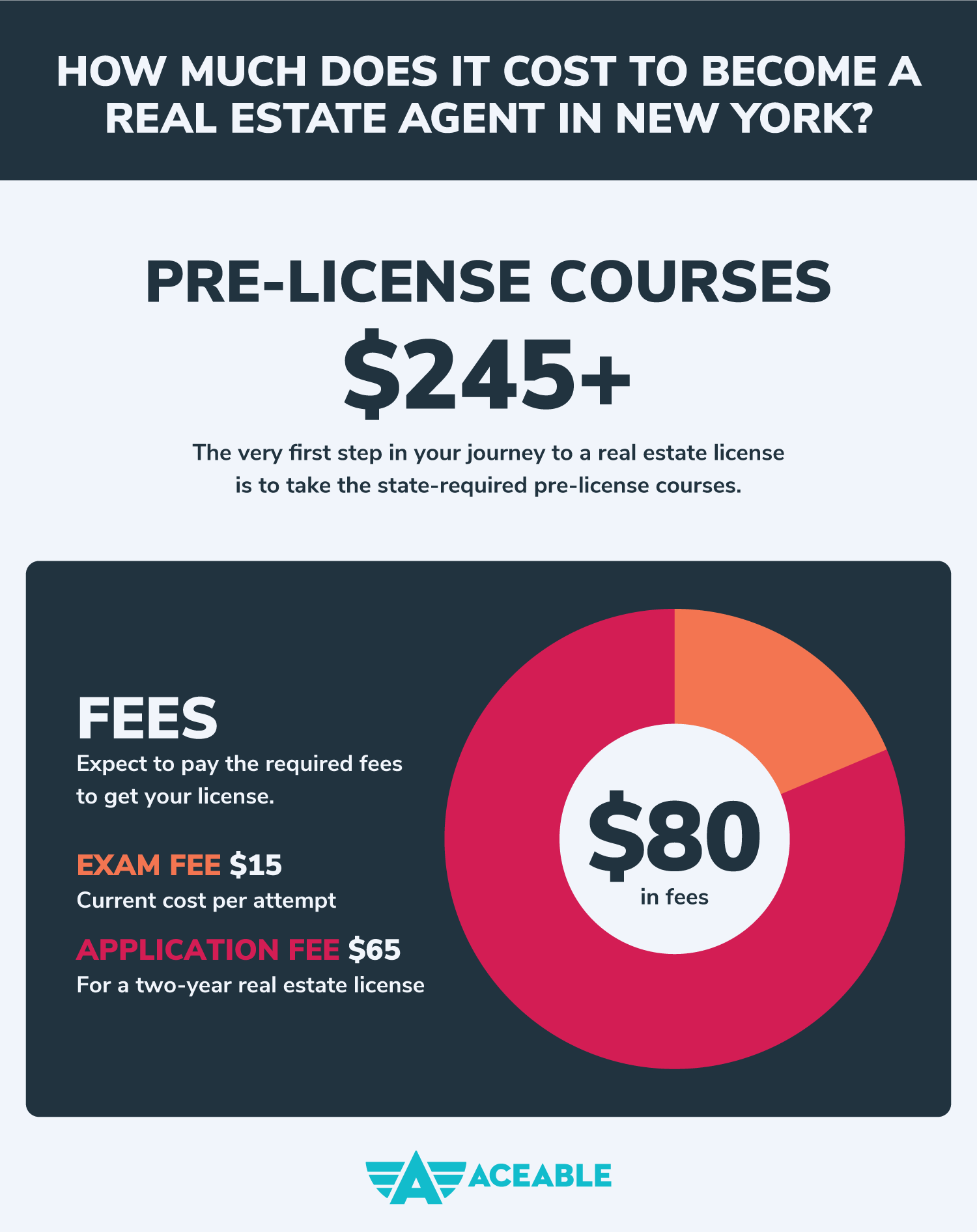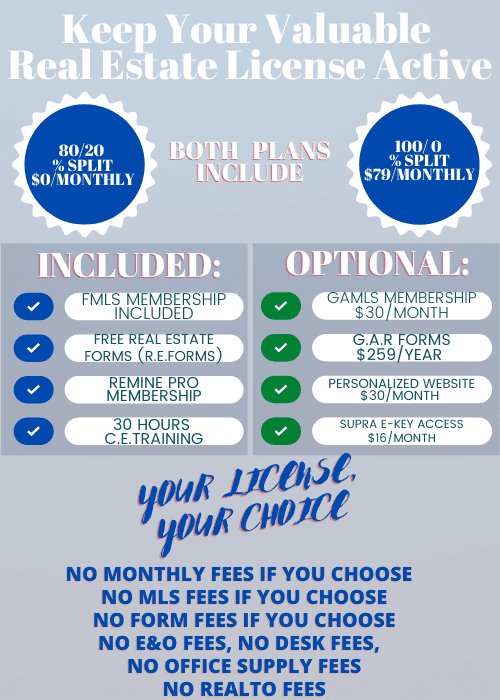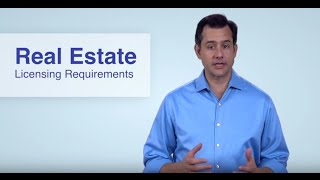
Although it might seem daunting, obtaining a South Carolina real-estate license is relatively easy. It is important to pass the exam and to complete a course. You may also need to pay an application fee. In some cases, you may even need to submit a criminal background report. The South Carolina Real Estate Commission website has more information about how to get a license.
Those who want to become a South Carolina real estate agent can do so by completing a 90-hour pre-licensing course. Applicants who are already licensed in another jurisdiction must complete the state portion of the applicable examination. Those who do not live in South Carolina can get their license by taking the course online. The average time required to get a South Carolina Real Estate License is about 3-5 Months.

The pre-licensing class is broken down into two sections: Unit I (or Unit II). To apply for a salesperson's license, everyone must take the Unit II course. Once you have completed your Unit II course you can take the state licensing exams. If you fail the exam, you can retake it and receive a pass. The state portion must be taken by a proctor. The proctoring can be scheduled at an hour that is convenient for you. You can find information on the South Carolina Real Estate Commission website about the courses available, their cost, and how you can apply for a license.
Anyone who applies for a Salesperson License must complete a 30-hour course on Property Management Fundamentals in addition to the prelicensing course. The Unit II 60-hour course is also available. The Unit II Advanced Real Estate Principles course must be taken before you begin your license process. You can also take the 30-hour Unit II course prior to or after the state exam. The course covers more hands on topics.
The broker-in-charge or property manager-in-charge must have a trust account with an insured financial institution. This account must remain current for at most five years. The broker in charge must provide training to employees on how to properly handle trust funds. The account title and balance must be included on any statement that is issued in connection to the trust account. This chapter also requires that the broker-incharge maintains and keeps current copies. The broker-in charge must also supply a copy the records to the representative of commission.

After you have completed the prelicensing course as well as your Unit II 60-hour course, you will be able to take the realty license exam. To pass the real estate licensing exam, you must score 70%. If you do not pass the real estate licensing exam, you will need to wait at least three years before attempting to take the exam again. You will also need to submit fingerprint background checks during this time.
FAQ
How can I eliminate termites & other insects?
Your home will be destroyed by termites and other pests over time. They can cause serious damage to wood structures like decks or furniture. A professional pest control company should be hired to inspect your house regularly to prevent this.
Should I use a broker to help me with my mortgage?
If you are looking for a competitive rate, consider using a mortgage broker. Brokers work with multiple lenders and negotiate deals on your behalf. Some brokers do take a commission from lenders. Before you sign up for a broker, make sure to check all fees.
Can I buy my house without a down payment
Yes! There are many programs that can help people who don’t have a lot of money to purchase a property. These programs include FHA, VA loans or USDA loans as well conventional mortgages. You can find more information on our website.
Is it better to buy or rent?
Renting is generally cheaper than buying a home. It is important to realize that renting is generally cheaper than buying a home. You will still need to pay utilities, repairs, and maintenance. A home purchase has many advantages. You'll have greater control over your living environment.
Can I get a second mortgage?
Yes, but it's advisable to consult a professional when deciding whether or not to obtain one. A second mortgage is typically used to consolidate existing debts or to fund home improvements.
Statistics
- Private mortgage insurance may be required for conventional loans when the borrower puts less than 20% down.4 FHA loans are mortgage loans issued by private lenders and backed by the federal government. (investopedia.com)
- Over the past year, mortgage rates have hovered between 3.9 and 4.5 percent—a less significant increase. (fortunebuilders.com)
- It's possible to get approved for an FHA loan with a credit score as low as 580 and a down payment of 3.5% or a credit score as low as 500 and a 10% down payment.5 Specialty mortgage loans are loans that don't fit into the conventional or FHA loan categories. (investopedia.com)
- This means that all of your housing-related expenses each month do not exceed 43% of your monthly income. (fortunebuilders.com)
- Based on your credit scores and other financial details, your lender offers you a 3.5% interest rate on loan. (investopedia.com)
External Links
How To
How to Buy a Mobile Home
Mobile homes are homes built on wheels that can be towed behind vehicles. Mobile homes are popular since World War II. They were originally used by soldiers who lost their homes during wartime. People who live far from the city can also use mobile homes. Mobile homes come in many styles and sizes. Some houses have small footprints, while others can house multiple families. There are some even made just for pets.
There are two main types mobile homes. The first type of mobile home is manufactured in factories. Workers then assemble it piece by piece. This happens before the product can be delivered to the customer. Another option is to build your own mobile home yourself. The first thing you need to do is decide on the size of your mobile home and whether or not it should have plumbing, electricity, or a kitchen stove. Then, you'll need to ensure that you have all the materials needed to construct the house. The permits will be required to build your new house.
If you plan to purchase a mobile home, there are three things you should keep in mind. Because you won't always be able to access a garage, you might consider choosing a model with more space. A larger living space is a good option if you plan to move in to your home immediately. Third, make sure to inspect the trailer. Damaged frames can cause problems in the future.
You should determine how much money you are willing to spend before you buy a mobile home. It is important that you compare the prices between different manufacturers and models. You should also consider the condition of the trailers. Although many dealerships offer financing options, interest rates will vary depending on the lender.
An alternative to buying a mobile residence is renting one. Renting allows for you to test drive the model without having to commit. Renting is not cheap. The average renter pays around $300 per monthly.